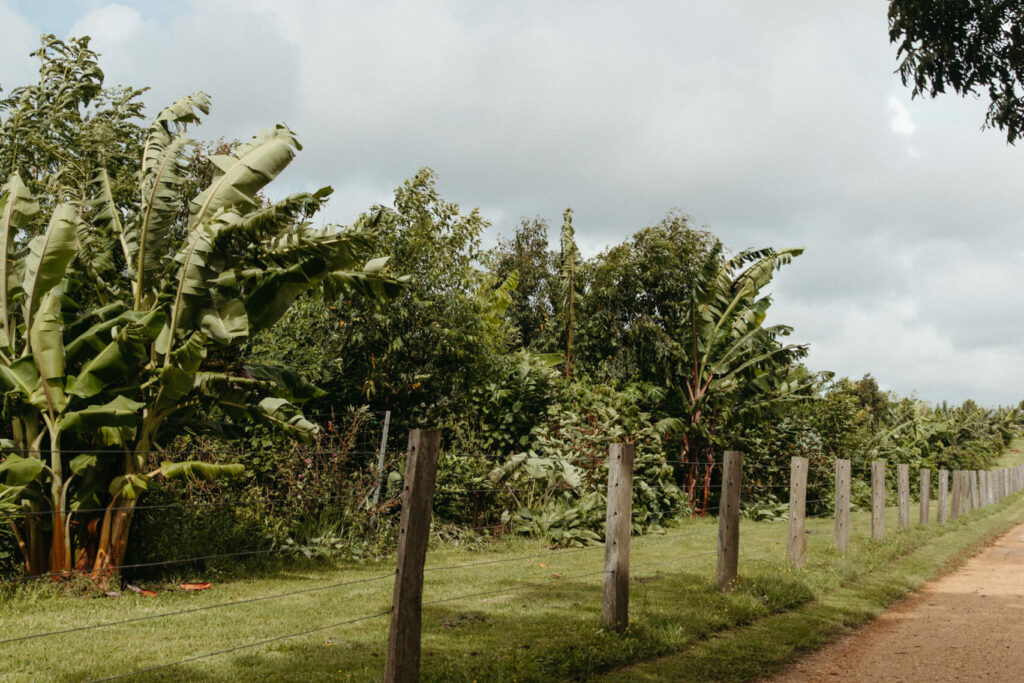By Georgia Hartmann
Naturopath, Founder of Hormone Health Studio
In light of Natural Fertility Awareness Week, I’d like to share a little about the complexity of fertility and simple strategies you and your partner can implement to optimise your fertility, naturally.
A word on how hard it can be to actually conceive
The latest release from the World Health Organization reports that infertility rates (defined as trying to conceive for 12 months or more) are on the rise. And while we know that a woman is only fertile six days of her cycle (five days before ovulation(because that’s how long sperm survives, and one day after ovulation because that’s how long the egg survives), we also now know that fertility is not just a woman’s problem. Roughly 30% of infertility cases are female-related, 30% are male-related, 30% are combined, and 10% are unexplained.[1]
As a woman in modern society it can be hard–we want to establish a career, travel the world, buy a home. Just as much as we may want to have a baby. The problem we face is that although society has progressed, unfortunately biology has not– our fertility is still 22 years of age.[2]
The biological clock is deafening
While you may be past the age of peak fertility (being over the age of 35 on the fertility journey honestly makes you feel like you’re in your 90s), fear not. There are numerous ways you can start optimising fertility today.
You see, the reproductive system is closely linked with many other organs and glands throughout the body. If we are constantly stressed then the hormone command centre in the brain, known as the hypothalamus, is activated. This will affect fertility. So too if digestive or vaginal health is compromised. Actually, an interesting study found that 80% of those who experienced miscarriage had significantly lower levels of lactobacillus in the vagina.[3] Moreover, what we know out of Denmark is that consuming even one alcoholic drink per week reduces the chance of conceiving.[4]
What I’m trying to say is that when it comes to optimising fertility, although we may not be able to control our age, there are many, many factors that we can control. And this is where our focus must be.
How long does it take to optimise fertility?
If you are wanting to conceive, my biggest recommendation is to commit to 120 days of preconception work. Why? Because the quality of the egg and sperm today is the reflection of everything that has been happening in your life over the past four months.
120 days is also the minimum amount of time that it takes for the egg to mature and the sperm to form. After all, getting pregnant is one thing. Bringing a healthy baby into the world is another.
Whether you are thinking about fertility or currently trying to conceive, here’s what you can do.
Start tracking your cycle
Considering ovulation is required to conceive, it is important to know exactly when this is. Just because you may have a regular 28-day cycle, it does not necessarily mean you ovulate on day 14. In fact, a small percentage of women do. The best way to track your cycle is to start taking your basal body temperature and cervical mucus.
First thing in the morning, before getting out of bed or eating or drinking, place a thermometer under your tongue and pop the reading into a tracking app such as Fertility Friend. If there are no ovulatory problems, you will start to see a pattern. Your temperature will be around 36.3 degrees celsius in the first half of your cycle, rise at ovulation, and stay elevated in the second half of your cycle–reaching almost 37 degrees celsius. (If you are pregnant, it will stay high as progesterone increases, otherwise it will drop off and the next cycle will begin). It is around the rise at ovulation where you are also looking for cervical mucus changes. The combination of temperature and cervical mucus changes will help confirm ovulation and therefore determine the best time for conception attempts.
Take a look at stress
As soon as the body senses stress, a cascade of 1,400 different biochemicals is released.[5]When you are in a state of stress, your hormone command centre in the brain, known as the hypothalamus, makes the executive decision to shut down any non-essential systems. One of the first to go is the reproductive system. (Because, understandably, when it’s just you and a hungry lion in sub-Saharan Africa, the last thing the body wants to do is bring a baby into the world). Ultimately, this constant state of stress can result in difficulty conceiving.
Prioritise good quality sleep
Poor quality sleep is a key driver in the development of many problems─be it anxiety and depression, weight gain, cardiovascular disease, cognitive decline, hormonal imbalance, or difficulty conceiving. When it comes to fertility, poor sleep is specifically associated with reduced ovary function, poor sperm health, as well as compromised IVF. And yet, many of us ignore the importance of sleep. Prioritising and aiming for 7-8 hours of good quality sleep each night is an effective way to start optimising your fertility.[6-9]
Ditch alcohol and smoking
While there seems to be controversy around how much alcohol is ‘safe’ when trying to conceive, completely avoiding it is your best bet. Alcohol affects hormonal balance, specifically that of oestradiol, testosterone, AMH and LH levels. It reduces ovarian reserve, is associated with poor IVF outcomes, and has been shown to negatively affect sperm health.[10] Smoking has a similar effect and is best avoided. [11]
Look to your environment
It is becoming increasingly difficult to avoid exposure to man-made endocrine disrupting chemicals (EDCs) and environmental toxicants. They are found in plastic water bottles and food storage containers, take-away coffee cups, makeup, skincare, and more. While it may be overwhelming, we must not ignore the effect of EDCs on fertility. Research shows us many negative effects on fertility–from egg and sperm quality, to ovulation and hormonal balance. Working to avoid plastics (including ‘BPA-free’ plastic products), as well as phthalates and parabens in beauty products are a great place to start.[12]
Move your body daily
The positive effects of exercise on fertility are well-established. Regular movement supports a healthy stress response, improves sleep quality, helps to maintain a healthy weight, and ensure essential hormones are in balance–all of which improve both egg and sperm quality, regulates ovulation, and ultimately optimises fertility and pregnancy outcomes.[13-15]
Get expert advice on correct supplementation
Nutritional and herbal medicine have many positive effects on fertility. When prescribed correctly in the right doses, forms, combinations, and without the addition of harmful excipients, they optimise nutrient status, support hormonal balance, ovulation, egg, sperm and embryo quality, improve sleep, support a healthy stress response, and therefore the likelihood of achieving and maintaining a healthy pregnancy.[16] Stop wasting time and money trying to figure it out on your own–let us help you at Hormone Health Studio.
References:
[1] Walker, M., et al. Female Infertility.StatPearls, 2022. PMID: 32310493.
[2] Jensen, R., et al. Public Perception of Female Fertility: Initial Fertility, Peak Fertility, and Age-Related Infertility Among U.S. Adults. Archives of Sexual Behaviour, 2018. PMID: 29582267.
[3] Xu, L., et al. Vaginal Microbiota Diversity of Patients with Embryonic Miscarriage by Using 16S rDNA High-Throughput Sequencing. International Journal of Genomics, 2020. PMID: 33299847.
[4] Tolstrup, J.S., et al. Alcohol use as predictor for infertility in a representative population of Danish women. Acta Obstet Gynecol Scand, 2003. PMID: 12848646.
[5] Childre, D. & Rozman, D. Transforming Stress. 2005. New Harbinger Publications: Oakland California.
[6] Alvaro, P.K., et al. A Systematic Review Assessing Bidirectionality between Sleep Disturbances, Anxiety, and Depression. Sleep, 2013. 36(7). PMID: 23814343.
[7] Capers, P.L., et al. A Systemic Review and Meta-Analysis of Randomized Controlled Trials of the Impact of Sleep Duration on Adiposity and Components of Energy Balance. Obesity Reviews, 2015. 16(9). PMID: 26098388.
[8] Yin, J., et al. Relationship of Sleep Duration With All-Cause Mortality and Cardiovascular Events: A Systematic Review and Dose-Response Meta-Analysis of Prospective Cohort Studies. Journal of the American Heart Association, 2017. 6(9). PMID: 28889101.
[9] Caetano, G., et al. Impact of sleep on female and male reproductive functions: a systematic review. Fertility & Sterility, 2021. PMID: 33054981
[10] Van Heertum, K., et al. Alcohol and fertility: how much is too much?Fertility Research & Practice, 2017. PMID: 28702207
[11] Penzias, A., et al. Smoking and infertility: a committee opinion. Fertility & Sterility, 2018. PMID: 30196946.
[12] Green, M.P., et al. Endocrine disrupting chemicals: Impacts on human fertility and fecundity during the peri-conception period. Environmental Research, 2021. PMID: 33385395.
[13] Ennour-Idrissi, K., et al. Effect of physical activity on sex hormones in women: a systematic review and meta-analysis of randomized controlled trials. Breast Cancer Research, 2015. PMID: 26541144.
[14] Harrison, C.L., et al. The Role of Physical Activity in Preconception, Pregnancy and Postpartum Health. Seminars in Reproductive Medicine, 2016. 34(2). PMID: 27169984.
[15] Rao, M., et al. Maternal physical activity before IVF/ICSI cycles improves clinical pregnancy rate and live birth rate: a systematic review and meta-analysis. Reproductive Biology and Endocrinology, 2018. 16(1). PMID: 29415732.
[16] Vitagliano, A., et al. Dietary Supplements for Female Infertility: A Critical Review of Their Composition. Nutrients, 2021. PMID: 34684554.
About the author:
Having been diagnosed with Premature Ovarian Failure two years prior to conceiving her first child naturally, Georgia’s passion lies within helping women overcome their hormonal imbalances through the blend of conventional and complementary medicine. For additional support, you can contact Georgia via:
E: hello@hormonehealthstudio.com








